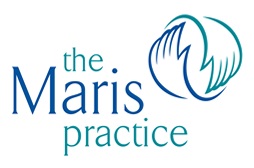Stress incontinence is a common yet often under-discussed condition that affects millions of people worldwide – particularly women. It occurs when physical movement or activity – such as coughing, sneezing, laughing, or exercising – puts pressure (or “stress”) on the bladder, leading to unintentional leakage of urine. While it’s especially prevalent after childbirth, during menopause, or in the aging population, stress incontinence can affect anyone at any age.
What Causes Stress Incontinence?
Stress incontinence is typically the result of weakened pelvic floor muscles or a loss of support to the urethra. Common contributing factors include:
- Pregnancy and childbirth (particularly vaginal delivery),
- Pelvic surgery,
- Aging and hormonal changes,
- High-impact sports or poor biomechanics,
- Chronic coughing or obesity.
Many people mistakenly believe stress incontinence is simply a normal part of aging or postpartum life, but it’s not something you have to live with. In addition to traditional methods, Osteopathy and targeted exercise can play a crucial role in managing pelvic floor issues. Osteopathy focuses on the body’s structure and function, promoting healing through manual manipulation and holistic care. By addressing alignment and mobility, osteopathy can enhance the pelvic floor’s functionality and support. Exercise, particularly when tailored to an individual’s needs, can strengthen and coordinate the pelvic floor and surrounding muscles. This comprehensive approach ensures the pelvic floor works in harmony with the rest of the body.
Movement Matters: The Helen Hall Approach
Helen Hall – founder of Helen Hall Training and creator of Perpetual Forward Motion™ – takes a unique and deeply integrated approach to helping individuals improve their movement, posture, and pelvic health. Her work isn’t limited to elite athletes; it extends to everyday people looking to move better, feel better, and reclaim control over their bodies.
What sets Helen apart is her whole-body perspective. Rather than isolating the pelvic floor and prescribing repetitive Kegel exercises, she emphasizes the interconnectedness of movement patterns, breath, posture, and gait. Through detailed biomechanical assessments and movement re-education, Helen helps clients identify the root causes of poor coordination or pressure mismanagement – often the true source of stress incontinence.
Why Traditional Pelvic Floor Exercises Aren’t Always Enough
Many individuals are prescribed Kegel exercises to “strengthen” the pelvic floor. While these can be beneficial, Helen highlights a critical nuance: a strong pelvic floor isn’t just about strength – it’s about timing, coordination, and integration with the rest of the body.
For example, poor running posture or breath-holding patterns during effort can contribute to unnecessary pressure on the pelvic organs. Helen teaches clients how to breathe efficiently, move fluidly, and align their spines and pelvises in ways that support natural continence without strain.
Client-Centered, Evidence-Informed
Helen’s approach blends cutting-edge science with intuitive coaching, tailored to each individual’s body. Her work has helped many people not only resolve stress incontinence but also regain confidence, joy in movement, and long-term resilience. I cannot recommend her highly enough!
If you’re struggling with stress incontinence, know that you are not alone – and that real, lasting improvement is possible.
Taking the Next Step
If you’re ready to go beyond symptom management and explore how intelligent movement can support pelvic health, consider connecting with Helen Hall Training. Whether you’re postpartum, peri-menopausal, or simply tired of planning your life around leaks, her approach offers a compassionate, empowering path forward.
You deserve to move without fear. You deserve to move with freedom.

